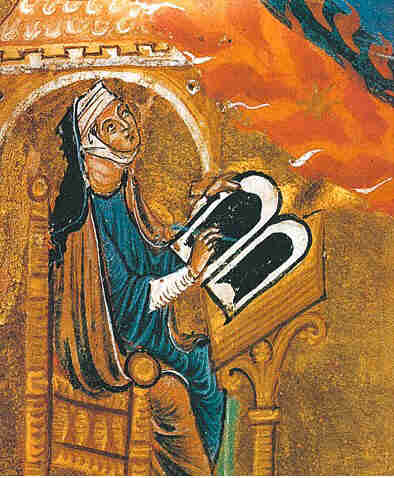Hildegard von Bingen (1098-1179) was a remarkable woman. At a time when few women wrote, Hildegard, known as "Sybil of the Rhine", produced major works of theology, medicine and visionary writings. Hildegard composed music and spoke of Christ as God's song.
When few women were accorded respect, she was consulted by and advised bishops, popes, and kings. In medicine she used the curative powers of natural objects for healing and wrote treatises about natural history and medicinal uses of plants, animals, trees and stones. Her scientific books contain more than 2,000 remedies and health suggestions. In the work " Liber simplicis medicinae" printed in 1533 and called Physica, she tells of the basic qualities, the medicinal value and the proper application of 230 plants, 63 trees, 45 animals.In "Liber compositae medicinae", called Causae et curae, Hildegard speaks of the external world, but always with reference to human health (the kinds of water that are safe to drink); on illnesses and their causes, on cures, and finally on symptoms to be looked for. She is the first composer whose biography is known, founded a vibrant convent, where her musical plays were performed.
Hildegard has been beatified and is frequently referred to as St. Hildegard. Revival of interest in this extraordinary woman of the middle ages was initiated by musicologists and historians of science and religion. (Abstract)
Prof. Camillo O. Di Cicco MD, American Association for the History of Medicine.
18th Congress of the European Academy of Dermatology and Venereology, Berlin 2009.
Miniatur aus dem so genannten Lucca-Codex des „Liber divinorum operum”: Hildegard am Schreibpult, um 1220/1230, Biblioteca Statale in Lucca







Comments